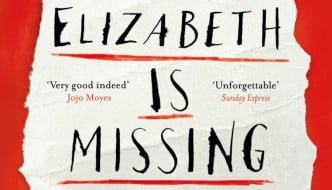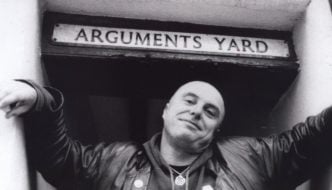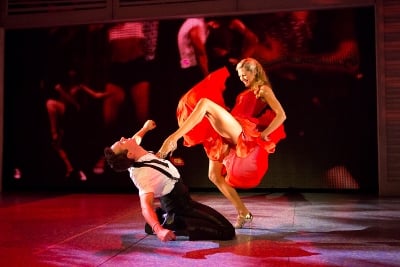Confessionals by Victoria McNulty: “These poems do not let themselves off the hook”
December 5, 2017
Ciarán Hodgers reviews the dizzying, blood-letting debut Confessionals from Scottish spoken word star Victoria McNulty.

I was excited to get my hands on this collection. Victoria McNulty’s been making waves across Scotland for the last year, and every time I’ve seen her perform I am reminded why. But before I even get to dive into this anticipated debut, a dosey-eyed Virgin Mary salutes me with a pint. The word ‘confessionals’ slapped across her mouth like a gag, and no name of the author. The illustrator Kirstyn Boyle strikes a stunning chord that fits with what’s about to come.
Confessionals is an modern day epic, in four parts: The Barmaid, Closed Doors, Confessions and The Exit. It regales the tale of a barmaid who finds herself surrounded by a culture she can no longer live in: a world of violence, sectarianism and austerity.
We begin on a bus somewhere in the Glasgow rain. McNulty carves out landscapes in mundane urbanity as a puddle shifts and swells like a flooded valley. The language is immediately conversational, informal and undeniably Scottish, with predatory undertones of war, weaponry and violence in every turn. Her lyricism aches like a bruise with a sharp punch of dark humour throughout.
McNulty is masterful at marrying the duality of the natural world and the manmade. The varying forms of violence and peace pervade, with both pessimistic and optimistic tendencies within the work. What is devastating in one breath is cathartic the next, elsewhere what feels like birth or growth turns infectious or cancerous in a moment. This anxious tension is the warp and weft of the world of the barmaid– a romantic, sensitive woman at the heart of a world that feels largely out to get her. Since her youth, even, she has been living under toxic circumstances;
“What’s a fenian bastard?” I asked my friend
“You.” He said.
Within these dalliances into the past McNulty seems to exhale herself, relaxing into a moment of distraction, so to speak, and lets slip these heavily protected vulnerabilities. They’re nearly gone before they happen and, sometimes jarringly, are brought back later on, obliquely, so as to avoid being over-the-top or showy.
The barmaid is completely drowning in hatred and violence, both personal and political, and – in many ways – I feel like McNulty is hinting that this is what the world can be like for women. Nothing is safe: everything has the potential to be vicious. Rather than lamenting this, however, McNulty is saying: ‘You’d better be bloody ready.’ It strikes me that these comparisons are planted so deeply within the rich story that a sense of pervasive intrusion and of being constantly on-edge undercuts everything the barmaid is experiencing. All apart from a father figure who arises like a ghost.
And then the mood flips – it turns funny. The stoned Uncle who thought it was a crisp drops in a welcome shock of comedy. Light and dark begin to weave together again now, but in finer patterns this time. The writing satisfies as it scorns. The comedy is dark and beautifully Glaswegian in its pessimism and frankness. For a story about abuse, the person experiencing these intense levels of pain and fear, the writing is refreshingly indelicate and hard.
“These are my confessionals […]
I didn’t feel possessed.
I felt loved and
I liked it.”
These poems do not let themselves off the hook. They hold accountable all those complicated emotions regardless of how much it might want to protect itself. This collection bleeds out the unsaid screams at the agitators of violence – austerity, drugs, Conservative government, toxic gender roles, boredom, jealousy and nationalism.
Confessionals charges ahead to its climax almost before it is ready – a bit like the barmaid herself. She might be unprepared but to drag it out any longer is to linger, and there is no use in that. There’s quite a lot of plates spinning in the air by this point and the symphony is when the barmaid steps aside and lets them fall and shatter. It’s moving because its unflinching at the complexity of feeling and they may be divisive and challenging but they are honest and authentic.
Confessionals is a startling modern epic. An excellent debut by one you should be watching, listening to and reading. Confessionals by Victoria McNulty is available from Speculative Books, Glasgow. Illustrated by Kirstyn Boyle.
Filed under: Written & Spoken Word
Tagged with: Confessionals, female poet, Glasgow, poem, poetry, poetry collection, publication, review, Scotland, Victora McNulty



Comments